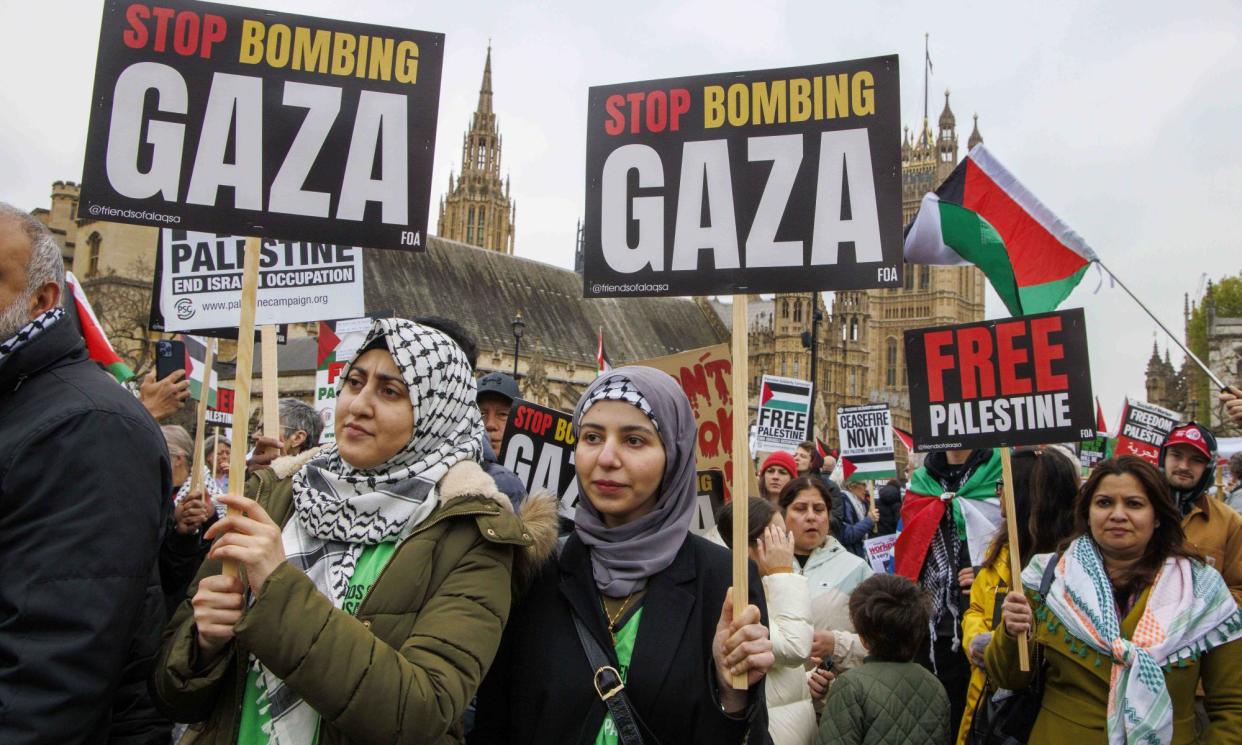Labour ‘working to get support back’ after losing votes over Gaza stance

A senior Labour official has insisted the party wants better lives for Palestinian people as it prepares to shift its campaigning to win back voters opposing its position on Gaza.
Pat McFadden, the party’s national election coordinator, said it would “work to get people’s support back” as analysis showed that despite huge gains in council seats, seizing the West Midlands mayoralty, and Sadiq Khan, the Muslim mayor of London, winning a third term, there was an almost 18% drop in the Labour vote in areas of England where more than a fifth of people identified as Muslim.
After an analysis of 930 wards by Prof Will Jennings, of the University of Southampton, showed the scale of the protest vote over Labour’s support for Israel over Gaza and the time the party took to call for a ceasefire, McFadden told the BBC’s Sunday with Laura Kuenssberg that the situation in the Middle East was a “high foreign policy priority” for Labour, adding: “The better lives that people want for the Palestinian people is something the Labour leadership shares.”
As the party digested the results – which saw declines in the Labour vote in parts of Oldham, Bolton and Elswick in Newcastle – Ali Milani, the chair of the Labour Muslim Network, warned of “pain in the hearts and the feeling of betrayal within the Muslim community”.
“We are now seeing the electoral consequence of that,” Milani said. “If I was a Labour MP in Bradford or Birmingham or Leicester or parts of London or Manchester, I would be seriously concerned.”
Related: ‘The hot topic is the war’: West Yorkshire’s Muslim voters feel politically homeless
Labour’s candidate for West Midlands mayor, Richard Parker, only just beat the Conservative incumbent, Andy Street, partly because an independent candidate, Akhmed Yakoob, won nearly 43,000 votes after a campaign focused on Gaza – seizing vote share from Labour. If Yakoob had received just over 1,500 more votes, Parker would have lost.
But Jennings urged caution in mapping the swings on to a general election. “What this highlights is certainly that Labour is in an uncomfortable position on Gaza,” he said. “And it is not just Muslim voters.
“But in a general election when we are looking at an anti-incumbent mood and there are fewer small parties and independents, we shouldn’t expect the pattern to be repeated.”
A reduction in intensity of the war in the Middle East may help to curb the swings away from Labour by the time of the general election, which looks increasingly likely to happen in autumn.
There are 20 constituencies in the UK with a more than 30% Muslim electorate, according to analysis by the University of Essex. All of them elected a Labour MP at the 2019 general election, and an 18% drop in the Labour vote in several of these would still not be enough to let in a rival party.
In Birmingham Hodge Hill, 79% of voters backed the former Labour Treasury minister Liam Byrne in 2019. Naz Shah won with 76% in Bradford West, Sam Tarry won with 66% in Ilford South and John Ashworth, the shadow paymaster general, won with a similar majority of 67% in Leicester South.
Related: Labour celebrates victories but loses ground in urban and heavily Muslim areas
The leaking of support from areas with larger than average Muslim populations may become more significant in the medium to long term if Labour finds the polls narrow once in government.
On Saturday, the senior Labour MP Ellie Reeves took some comfort from the view that “independents always tend to do better in local elections”, but nevertheless insisted: “We have recognised the strength of feeling on this issue. We have called for an immediate ceasefire, we have also said there should absolutely be no ground offensive on Rafah.”
Asked if Labour regretted its earlier stance on the conflict, she said: “Keir Starmer has always been clear that our position would always respond to what is happening there.”
The party will hope that news from the region will increasingly focus on peace talks rather than the bloodshed of the last seven months.
At the weekend, Wes Streeting, the shadow health secretary, said: “I don’t deny that there are people out there who are feeling let down and I want them to know that we’ve heard. We will take that on the chin, and we’ll work hard to win people’s trust back at future elections.”


